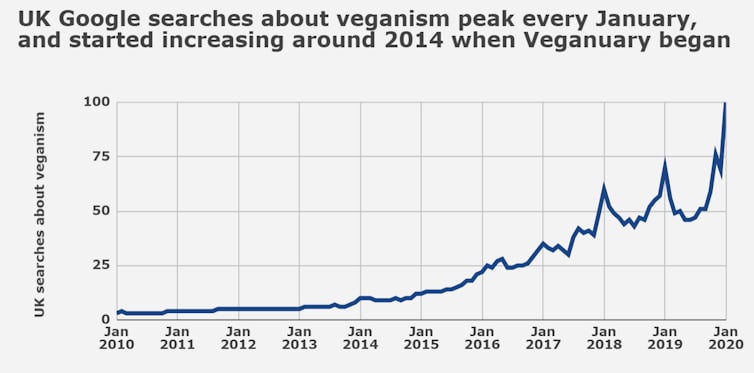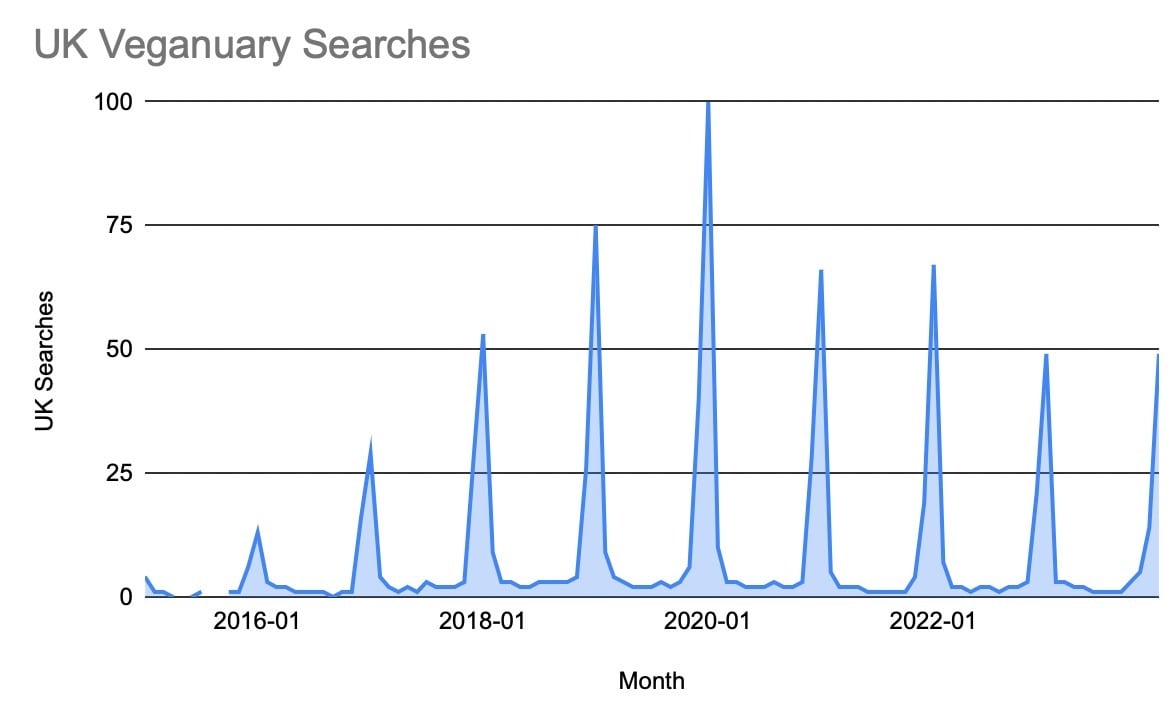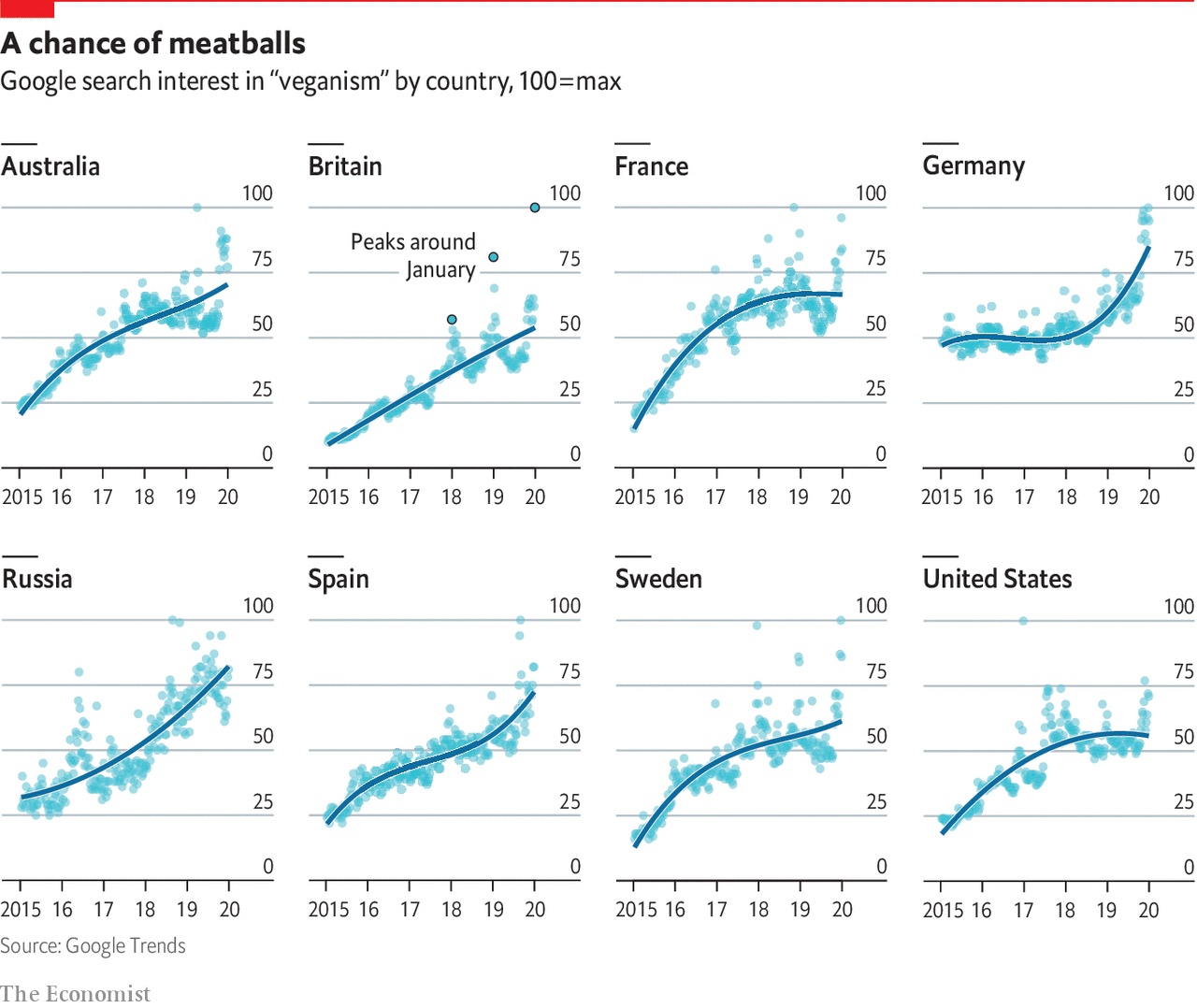For people short on time (like me), I’ll point out this article brief, highly skimmable, and full of self-explanatory graphs. It also briefly explains reasons the researchers think Veganuary succeeds where similar efforts have failed (i.e., the time of year and social experience).
At first glance, the evidence presented here seems quite impressive for near-term reductions in animal product consumption. However, it may not be as impactful as it initially seems (see the comments on this post).
To the extent that it is effective, I’m unsure whether it indicates significant moral circle expansion because many participants may already include farmed animals in their moral circle, meaning they aren’t expanding their moral circle, but instead accepting the implications of their moral circle (which may be a distinction without a difference, as both produce equally-good long-term consequences).




I wonder if the effect is just too small to detect through the noise and other trends and shocks in animal product consumption, but it still exists and is still big in absolute terms for animals.
1.3 million people in Great Britain going vegan for the first time in January 2019 (source1, source2) out of 65 million people living in Great Britain is only about 2% of the population of Great Britain,[1] so we'd expect at most a 2% negative demand shift on meat purchses. Those going vegan were also probably eating less meat on average, so 2% would be an overestimate. And then you also have to adjust for elasticities, so the actual effect on meat production or sales would probably be <1%. That could be hard to detect, depending on how large differences in meat sales year-over-year and December to January typically are.
On the other hand, they report 1.31 million as 4.7% of the total GB adult population, but this seems wrong to me:
This would imply a GB adult population of 1.31 million / 0.047 = 27.9 million. But there were fewer than 16 million people under 18 in the UK in 2023 so GB should have an adult population of at least around 65 million (all GB) - 16 million (UK non-adults) = 49 million. I don't see how they got 4.7%.